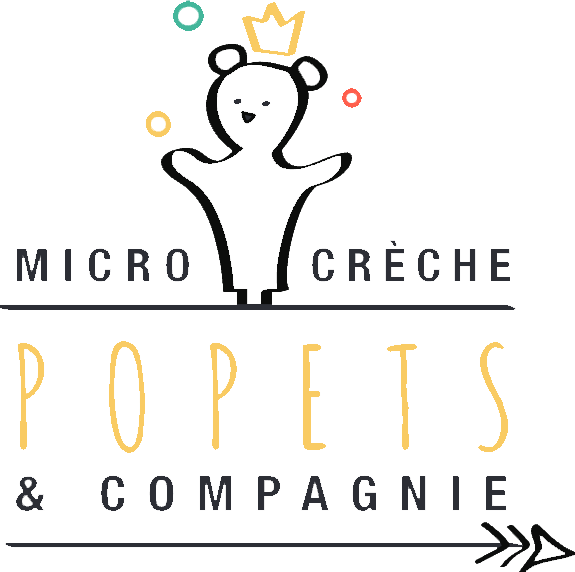AWAKENING – EDUCATION – PEDAGOGY
Home
The morning reception is a very important moment for the child and the parents. A zone dedicated to transmissions is set up at the entrance to the crèche.
The reception is done in free play so that the child can take his place quietly. The play areas remain the same for a few weeks.
Preparing for the morning arrival:
The parents communicate the important elements/facts of the day before and of the day to ensure a smooth running of the day.
Everything is noted on the sheet belonging to the child (meeko application) Our role is to support the child in this step:
The team takes the time to discuss with the parents and to put the child in confidence and to reassure him. The evolution of the child is controlled by the whole team and the director. Transmissions are available to the entire team and should be read daily for the team. The reception is from 7:30 am. We ask parents not to arrive later than 9:00 a.m., to respect the rhythm of the child. Once the welcome is done, the activities can begin. The child will be greeted by the welcome song. Then the activities can begin.
Lockers with the first name are available in the hall so that the parents can undress the child before entering the main room.
Babies will be put to bed according to their ages and needs. It is important to respect the rhythm of the child.
In summer, the reception is made in the garden when the temperatures are cool and the children can enjoy it.
- Respond to the emotional, physical, security, comfort and hygiene needs of the child. Accompany the child in his discoveries.
- Respect the rhythm of each child.
- Play and living spaces adapted to the age and needs of the child.
- Psychomotor, physical and psychological development.
- Accompany the child in the acquisition of autonomy. – Respect and community life.

Transmissions
The transmissions are done individually and allow to exchange a maximum of information between the structure and the parents.
The team details the course of the day as much as possible and thus allows a moment of exchange.
For transmissions of babies, the time of breakfast is added to it to know at what time the child should go back to bed in the morning. We also need to indicate if we have put cream on the irritated seats and be more detailed on the food.
A detailed report is made to the parents to explain their child’s day. This information will also be transmitted on the Meeko application.
If ever the professional is concerned about something, he shares it with the parents. It is important to spend time explaining because parents need to know exactly what happened in their child’s day.
Departures start from 4:30 p.m. and end at 6:30 p.m. maximum. The establishment closes at 6:30 p.m. We ask parents to arrive at least 5 to 10 minutes before the structure closes for transmissions.
awakening
The crèche is a place of discovery, adaptation and awakening for each child, whatever their age. The toddler learns by playing. They also get to know themselves and face the difficulties of community life.
Play is essential for the proper development of the child and in the construction of his individuality and personality. The game allows you to translate your emotions and move from the imaginary world to the real world.
The layout of play areas within childcare facilities has a real impact on the behavior of children and the professionals who accompany them. A suitable and thoughtful layout promotes the child’s autonomy and free creative expression, and allows professionals to give meaning to the space.
- Reception area conducive to play to facilitate separation
- Delimited play areas that simplify movement
- Free games – it is important to facilitate access to different games so that the child can choose what he wants
- Staging play areas promotes role play
- The interlude zones – dialogues, playful imitations, first complicities
- Construction area: development of fine motor skills, dexterity, shapes and objects, decanting
Every activity for every age
The little ones: mats, sensory games, books, soft games, balls, songs The means: it is necessary to develop curiosity and fine motor skills, decanting, songs, free games, manipulations, role-playing The biggest: agility and discovery. painting, stickers, collages, modeling clay, construction games, coloring, puzzles, adult imitation corner, the 5 senses. Not all the activities are mentioned but the parents are informed daily of the activities practiced during the day. A great opportunity to introduce the English language.
Tidying up time is very important and contributes to the education of the child without taking the place of the children.
free play
Free play teaches children to respect others and materials, to share and socialize. But it also promotes discovery and curiosity. The staff present encourages the child to develop his imagination and to offer solutions if he encounters problems. But also, the professional stays away and only intervenes when necessary. He does observation work.
Play is a child’s way of learning. Playing alone brings independence and self-confidence. From the perspective of bilingualism, learning to play in another language allows the child to flourish and discover an unknown world. By himself, the child asks for the name of things and saying it in two different languages allows him to want to know more. He can thus develop his language through repetition.
As soon as we can, the children play in the outdoor courtyard.
Activities (or guided games)
The activities are intended to leave room for the imagination while being guided by limits and rules for the child’s learning. You have to leave room for creativity in order to acquire certain skills.
The different types of activities:
- directed games
- psychomotor games
- Musical awakening
- Cooking workshops for older children
- artistic games
- Workshops according to the seasons and annual events – Pastry workshops
The professional offers an activity adapted to the age of the child every day. The activities allow children to acquire new skills, to give free rein to their creativity and imagination. It also promotes social learning, fine and gross motor skills, discovery. The role of the adult, unlike free games, is to guide the child by establishing rules, the choice of participation, to accompany him, to provide suitable equipment. During the activities, small workshops are formed so that the child can choose what he wants to do.
A check of the state of the toys is made regularly by the team as well as its daily cleaning.
DAILY LIFE / CARE
Meals
Meal time is a time of conviviality and learning at the same time. The meals are balanced for the well-being and development of the child. The child learns to socialize while respecting the given rules. The child must remain seated, eat cleanly and taste everything we offer him even if the child refuses to finish or says he does not like it.
Early childhood professionals are there to show and express the rules of politeness. The rules of hygiene are applied by each child from an early age:
Throughout the day, the child is offered to drink water. The frequency increases during the summer periods.
Cooking workshops are organized with older children every month or quarter according to the rules of catering.
For babies, the diversification of food is totally controlled and managed by the parents. The role of parents is to tell us when to start introducing certain foods and bits. The new food must have been introduced at least three times at home.
A table is displayed with all the foods and a cross written when the food has been introduced into the home.
The crèche has decided not to provide infant milk. Parents must bring their own.
For nursing mothers, we offer the possibility of doing it on site. For breastfeeding milk, please refer to the protocol.
Attention !!! Any allergies, intolerances or diets must be reported. A PAI will be made.
The sleep
Each child is different and we best adapt to their pace and that of the crèche. The child’s sleep is often different at the crèche than at the parents’ home because the child must confront the community, a new rhythm and possibly the noise of others. We do our best to maintain the child’s own rhythm. We do not wake a sleeping child. Sleep is a fundamental need for the development of the nervous system of the child. It is essential for its physiological and psychic development. Before taking a nap, children must be in a relaxing and relaxed environment (ritual to be established) in order to prepare them for falling asleep, which can sometimes be difficult for children to manage when they find themselves in the community. We offer reading time. We leave the choice to the children to do a free play activity.
Our role is:
- Respect the rhythms of each child • Adapt bedding according to age • Recognize signs of fatigue
- Nap monitoring
The child must feel safe, which is why we give him his cuddly toy and pacifier if the child has one. Each child has their own bed and the bed remains in the same place. The child is never awakened unless a parent wishes to pick him up exceptionally earlier. If a child has trouble falling asleep, a professional takes him aside and tries to calm him down.
The room should be dark, away from noisy rooms and with an ambient temperature of 19°C. For babies, morning and afternoon naps are very important. In the morning, the baby is put to bed as soon as he shows signs of fatigue, depending on his age, his pace and his waking time.
A professional is always present in the rest room. Awakened children can stay with a professional in the living room and have the opportunity to play quiet games until their friends wake up.
The nursery provides sleeping bags / sleeping bags, blankets and sheets.
If parents wish, they can bring their own sleeping bag / sleeping bag. They are maintained by the parents. The structure is not responsible for this cleaning.
Changing – potty training
It is important that the team targets the pace, fears and desires of the child so that a work of collaboration and trust is established between the team and the children welcomed. The time of the diaper change is to be a moment of relaxation and exchanges. We must explain our action to the child, give him confidence, talk to him, sing him songs, teach him the parts of his body.
The child is changed as many times as necessary and is always left in a clean diaper. The change is made with soap and water with a washcloth. If the parents choose another means of exchange, they must provide the necessary elements
The cleanliness of the child: this basic work must first be done at home when the child shows signs that he is ready. we do not take the place of the parents but we can follow their wishes by bringing the child to the toilet when he feels the need. The pot is offered to the child but not imposed. Standing changes are also practiced.
We also explain to parents that the child must go through nerve maturation for the control of the sphincters. The child must also be able to become aware of his needs, showing intellectual maturation.
Hygiene
Hygiene is a very important element for the education of the child. Hygiene is part of his daily life and contributes to his well-being and comfort. Hygiene education is essential for children. The child must have with him, spare things, noted in his name and first name. We do not support the cleaning of personal clothing. The linen used belonging to the establishment, is cleaned by the staff. Nose washes are done with saline solution provided by the crèche.
Health – prevention
In the event of minor sores and various illnesses, protocols are presented to families in a welcome booklet drawn up by the director and manager. The protocols relate to fever, falls, diarrhoea….
The comforter, the pacifier, family photo
The cuddly toy represents the transitional object that accompanies the child towards autonomy and facilitates separation. It comforts in moments of sadness, fatigue, anxiety, nervousness.
Detaching the comforter is part of learning. The pacifier also plays this role of transition.
The comforter and the pacifier are made available to the child as soon as he feels the need. We encourage the child to use his comforter only in moments of comfort, fatigue, sadness (departure of the parents).
We ask parents to leave a cuddly toy/pacifier at the crèche to avoid any oversights. A photo album is requested from the family so that the child can have it during the day.
For children ready for the start of kindergarten, we encourage the child to put down his comforter and pacifier regularly.
The permanent disposal of the comforter and the pacifier for the child is a subject that will be discussed with the team before the opening of the structure.
THE TEAM
monthly meetings
Monthly meetings are organized with the employees in order to take stock of the problems encountered, of any changes to the educational project, the organization or other. This is very important for the development of the team and the team atmosphere.
Any problem must be immediately reported in order to find a suitable solution.
Staff training
Regular training is given to staff. Each member of staff will have their own evaluation and wishes sheet for desired training. The nursery accompanies the staff in their professional life.
The training focuses on the analysis of professional practices, training in first aid and fires, educational workshops, good treatment.
For line staff, training with lawyers on labor law is carried out and management training.
FAMILY AND PARTNERSHIPS
Relationships with families
In order to allow the child to flourish at the crèche and at home, it is imperative that communication is clear and effective between the crèche and the parents.
If the parents have questions or are concerned, an appointment will be set up to discuss them. The structure uses software called Meeko, a website so that parents can follow the activities and times of the crèche. Each parent will have the Meeko application and will be able to follow their child during their day at the nursery. https://meeko.pro
It is important that families can contribute to the life of the crèche. Meetings can be organized at the request of the parents but a quarterly update will be made for each child with the director and/or the manager of the establishment on the evolution and development of the latter.
The family welcome booklet
The welcome booklet is specific to each structure. It is given to families upon registration. The composition of this booklet remains to be defined.
Diseases and evictions
Eviction from the community is a regulatory obligation for certain pathologies. These last
are few
For a detailed list of contagious diseases, please refer to the ameli.fr website. The decision to evict and return to the community is made on medical advice. See protocol in place.
For certain pathologies that do not require eviction, community attendance is not recommended during the acute phase of the disease. This decision, taken on a case-by-case basis, is the responsibility of the person in charge of the structure and must be conditioned by the comfort of the child, in particular if the symptoms are severe. A mention appears on the sheets of the pathologies concerned.
In the event of a medical emergency, parents must sign a discharge certificate, authorizing their child(ren) to be admitted to a hospital center or taken care of by an emergency service.
An information sheet is filled in beforehand by the family to find out who to contact in the event of an emergency.
Medication
As far as possible, medical treatment should be assigned to the parents’ home.
Any medical treatment must be accompanied by a recent prescription. The treatments can be given by the qualified personnel of the structure (director or childcare assistant). Medicines intended for the crèche must not be opened and must be provided in their original packaging.
Antipyretics are not provided by the crèche. Please provide us with one. Qualified personnel are authorized to administer, on medical prescription, from a temperature equal to or greater than 38°C depending on the weight (according to the new procedures following the COVID health conditions)
If the child has a sudden fever during the day, the director or the childcare assistant immediately calls the parents and assigns the medicine (subject to prescription and parental authorization) to the child. If her condition does not improve, she asks the parents to pick up the child.
If the child becomes ill during the day, she calls the parents so that the child can be recovered. A protocol will be put in place for the detection of COVID symptoms.
It is important that parents keep informed of the structure of any contagious diseases within the family with which the child may have been in contact so that the staff can make the appropriate sanitary arrangements.
Stakeholders
Throughout the year, we bring in external speakers. The topics focus on physical and musical awakening, yoga and relaxation, baby gym and parent-child participation. There are also interventions in English in our future project.
The speakers are programmed according to the educational project of the crèche. The children remain under the responsibility of the nursery management team.
Nursery partners
For the administrative side, the crèche is in contact with:
- PMI
- CAF
- CPAM
- The Departmental Council – The Commune
The other partners are to be identified according to the educational project.

